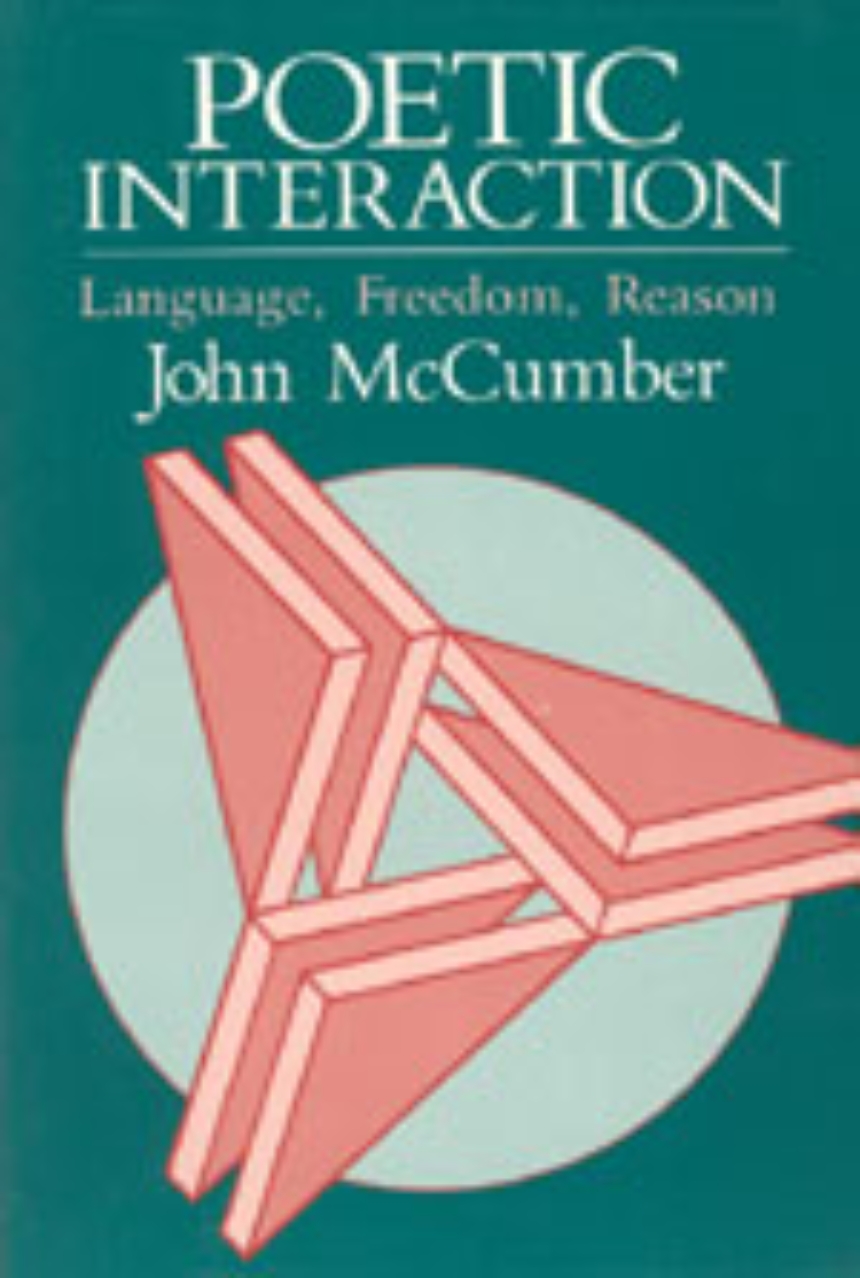Poetic Interaction
Language, Freedom, Reason
Poetic Interaction presents an original approach to the history of philosophy in order to elaborate a fresh theory that accounts for the place freedom in the Western philosophical tradition. In his thorough analysis of the aesthetic theories of Hegel, Heidegger, and Kant, John McCumber shows that the interactionist perspective recently put forth by Jürgen Habermas was in fact already present in some form in the German Enlightenment and in Heidegger’s hermeneutic phenomenology. McCumber’s historical placement of the interactionist perspective runs counter to both Habermas’s own views and to those of scholars who would locate the origin of these developments in American pragmatism. From the metaphysical approaches of Plato and Aristotle to the interactionist approaches of Habermas and Albrecht Wellmer, McCumber provides an original narrative of the history of philosophy that focuses on the ways that each thinker has formulated the relationships between language, truth, and freedom. Finally, McCumber presents his critical demarcation of various forms of freedom to reveal that the interactionist approach has to be expanded and enlarged to include all that is understood by "poetic interaction." For McCumber, freedom is inherently pluralistic. Poetic Interaction will be invaluable to political philosophers, historians of philosophy, philosophers of language, and scholars of legal criticism.
Table of Contents
Abbreviations
Acknowledgments
General Introduction
Part One: Analysis
Introduction
1. Communication as Recognition: Phenomenology of Spirit B
2. Communication as Externalization: Phenomenology of Spirit C.BB
3. Communication as Reconciliation in Hegel’s Aesthetics
4. Aesthetic Emancipation and the Politics of Hegel’s Aesthetics
5. Communication and Community in Being and Time
6. Heidegger Beyond Being and Time: "The Origin of the Work of Art"
7. Heidegger’s View of Intrinsically Emancipatory Interaction: "From a Dialogue on Language"
Part Two: Narrative
Introduction
8. Freedom and Metaphysical Aporia: Republic 8 and Phaedo
9. Eros and Emancipation: The Three Speeches of the Phaedrus
Analysis
Narrative
10. Speech and Politics in the Phaedrus
Analysis
Narrative
11. Metaphysical Prescriptions and the Aristotelian Concept of Freedom: De Anima I.3
Analysis
Narrative
12. Freedom and the Soul in the Aristotelian Political Writings
Analysis
Narrative
13. Freedom and Interaction in the Aristotelian Polis
Analysis
Narrative
14. The First Foundation of Kantian Political Philosophy: The Critiques of Pure and of Practical Reason
Analysis
Narrative
15. The Second Foundation of Kantian Political Philosophy: The Critique of Judgment
Analysis
Narrative
16. Kantian Political Philosophy in Its Double Foundation
Analysis
Narrative
17. Hegel
18. Heidegger
Part Three: Demarcation
Introduction
19. The First Foundation in The Theory of Communicative Action
Analysis
Narrative
Demarcation
20. The Second Foundation in The Theory of Communicative Action
Analysis
Narrative
Demarcation
21. Habermasian Accounts of Art: The Theory of Communicative Action and Albrecht Wellmer’s "Wahrheit, Schein, Versöhnung"
Analysis
Narrative
Demarcation
22. Structures of Poetic Interaction
Analysis
Narrative
Demarcation
23. Freedom, Politics, and Poetic Interaction
Analysis
Narrative
Demarcation
Notes
Bibliography
Index
Acknowledgments
General Introduction
Part One: Analysis
Introduction
1. Communication as Recognition: Phenomenology of Spirit B
2. Communication as Externalization: Phenomenology of Spirit C.BB
3. Communication as Reconciliation in Hegel’s Aesthetics
4. Aesthetic Emancipation and the Politics of Hegel’s Aesthetics
5. Communication and Community in Being and Time
6. Heidegger Beyond Being and Time: "The Origin of the Work of Art"
7. Heidegger’s View of Intrinsically Emancipatory Interaction: "From a Dialogue on Language"
Part Two: Narrative
Introduction
8. Freedom and Metaphysical Aporia: Republic 8 and Phaedo
9. Eros and Emancipation: The Three Speeches of the Phaedrus
Analysis
Narrative
10. Speech and Politics in the Phaedrus
Analysis
Narrative
11. Metaphysical Prescriptions and the Aristotelian Concept of Freedom: De Anima I.3
Analysis
Narrative
12. Freedom and the Soul in the Aristotelian Political Writings
Analysis
Narrative
13. Freedom and Interaction in the Aristotelian Polis
Analysis
Narrative
14. The First Foundation of Kantian Political Philosophy: The Critiques of Pure and of Practical Reason
Analysis
Narrative
15. The Second Foundation of Kantian Political Philosophy: The Critique of Judgment
Analysis
Narrative
16. Kantian Political Philosophy in Its Double Foundation
Analysis
Narrative
17. Hegel
18. Heidegger
Part Three: Demarcation
Introduction
19. The First Foundation in The Theory of Communicative Action
Analysis
Narrative
Demarcation
20. The Second Foundation in The Theory of Communicative Action
Analysis
Narrative
Demarcation
21. Habermasian Accounts of Art: The Theory of Communicative Action and Albrecht Wellmer’s "Wahrheit, Schein, Versöhnung"
Analysis
Narrative
Demarcation
22. Structures of Poetic Interaction
Analysis
Narrative
Demarcation
23. Freedom, Politics, and Poetic Interaction
Analysis
Narrative
Demarcation
Notes
Bibliography
Index
